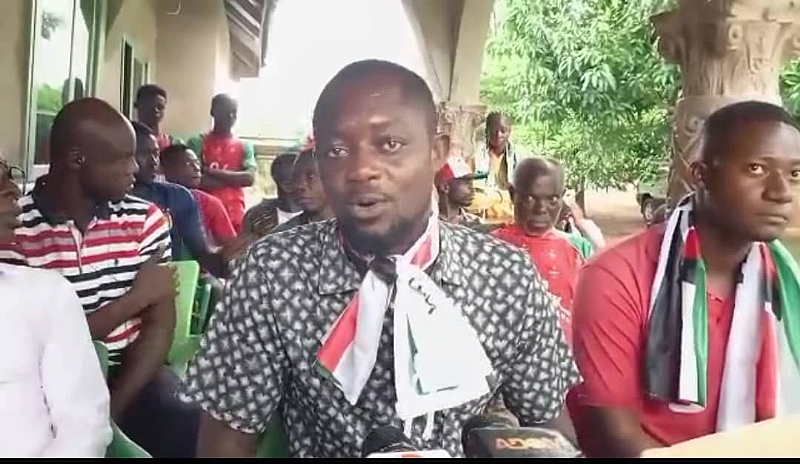The simmering discontent within the National Democratic Congress (NDC) in the Assin North District of Ghana’s Central Region has erupted into open criticism of Member of Parliament James Gyakye Quayson and Constituency Chairman Felix Benefo. A group of concerned youth within the party alleges that these two leaders have engaged in a pattern of favoritism and cronyism, appointing close associates and preferred candidates to key positions while overlooking other qualified and dedicated party members. This practice, they argue, is undermining the party’s unity, eroding grassroots morale, and creating a breeding ground for internal conflict.
At the heart of the current controversy lies the abrupt removal of Christian Ankomahe Amoah from his recently appointed position as Youth Employment Director. Amoah, who also served as the constituency’s Deputy Youth Organizer, was allegedly ousted due to pressure exerted by Quayson and Benefo on the Regional Youth Employment Agency (YEA). The youth group contends that this action was taken without any justifiable cause and solely to install Francis Ativi, a close associate of the MP, into the position. This perceived manipulation of appointments has fueled suspicions of a broader pattern of favoritism within the constituency, raising concerns about the fairness and transparency of the selection processes.
Beyond the Youth Employment Director appointment, the concerned youth also raise serious concerns about the selection process for the District Chief Executive (DCE) position. They allege that Quayson and Benefo manipulated the process to favor their preferred candidate, disregarding other qualified nominees who had been recommended by the regional vetting committee. This perceived disregard for established procedures and the opinions of other party members has further solidified the perception of an exclusive and non-inclusive leadership style, exacerbating the growing rift within the constituency.
The youth group argues that the actions of the MP and Chairman are not only detrimental to the party’s internal cohesion but also undermine the democratic principles that the NDC espouses. They emphasize that leadership decisions should reflect the collective will of the grassroots members, not merely the preferences of a select few at the top. The current situation, where appointments appear to be driven by personal connections rather than merit and established procedures, threatens to create a two-tiered system within the party, where those with close ties to the leadership enjoy preferential treatment while others are marginalized.
In response to the escalating crisis, the concerned youth have issued a direct appeal to the national leadership of the NDC. They are urging party executives to intervene and conduct a thorough investigation into the allegations of favoritism and manipulation. Their primary demand is for a more transparent and inclusive approach to future appointments within the Assin North Constituency. They believe that a fair and equitable system, where all qualified members are given equal consideration, is crucial to restoring trust, rebuilding unity, and strengthening the party’s foundation.
The plea from the youth is a clear signal that the issues at stake go beyond mere internal squabbles. It highlights the importance of internal democracy, fair representation, and adherence to established procedures within political parties. The response from the national NDC leadership will not only determine the immediate future of the Assin North Constituency but also set a precedent for how the party addresses similar challenges elsewhere. The call for transparency and inclusivity ultimately underscores the need for a stronger, more unified party capable of effectively representing the interests of its constituents. The hope is that the national leadership will heed this call and take decisive action to address the concerns raised by the youth, paving the way for a more democratic and participatory internal structure.














